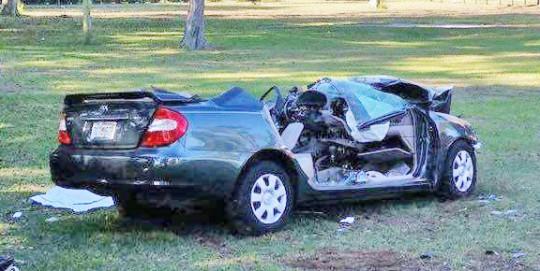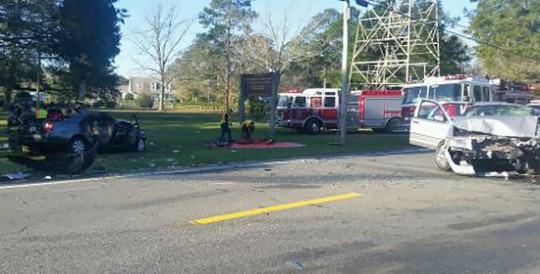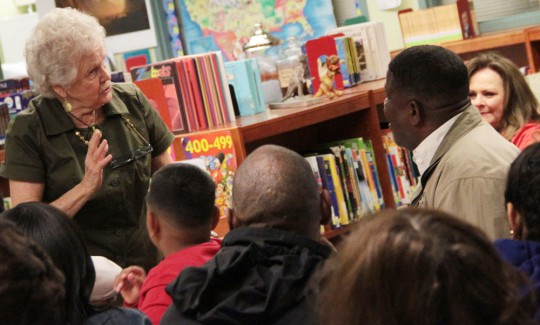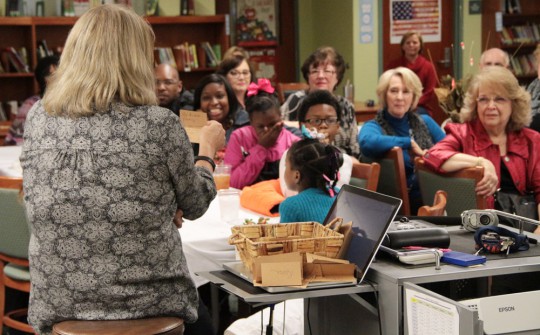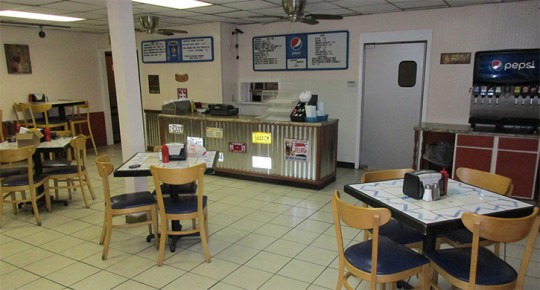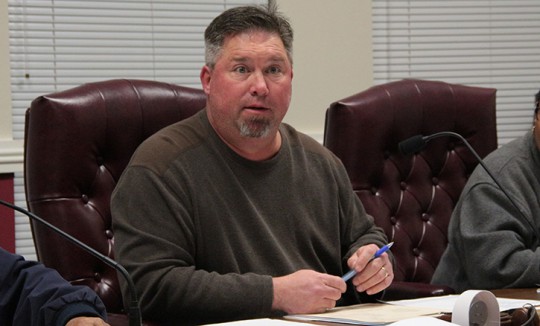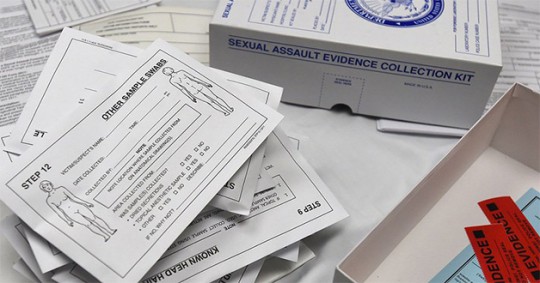Beulah Accident Claims One Life
January 5, 2016
One person lost their life in a morning crash in front of the Escambia County Equestrian Center on Mobile Highway in Beulah Tuesday morning.
According to the Florida Highway Patrol, 70-year old Phyllis J. South of Pensacola was traveling west on Mobile Highway in a 2003 Toyota Camry when she crossed into the eastbound travel lane and into the path of a 2011 Mercury Marquis driven by 46-year old Terrance D. Culliver of Luverne, AL.
South was pronounced deceased at the scene of the 8 a.m. accident. Culliver was transported by Escambia County EMS to West Florida Hospital with minor injuries. Both were wearing their seat belts, and the crash not alcohol related, according to FHP.
Any charges in the crash are pending the outcome of an investigation, according to FHP. The Beulah and Bellview stations of Escambia Fire Rescue and the Escambia County Sheriff’s Office also responded to the scene.
Pictured top: The driver of this Toyota was pronounced deceased following a Tuesday morning crash in Beulah. Reader submitted photo. Pictured below: The driver of this Mercury Marquis received only minor injuries. NorthEscambia.com photos by Kristi Price, click to enlarge.
Century Hikes Natural Gas Rates, Fees
January 5, 2016
The Century Town Council has approved a natural gas rate increase, and an increase in fees that will mean higher bills for most customers. The increase may be nominal for those that use more gas, and 33 percent or more for infrequent users.
The increase, effective with January billing, is the first in over a decade.
A typical customer using natural gas in the summer for cooking and hot water will see the cost of 13 therms rise from $22.53 to $33.30. In the winter, a typical customer using 104 therms in the winter for cooking, hot water and heating, will see a 12 percent increase for 104 therm from $153.44 to $173.44, according to examples provided by Town Clerk Leslie Gonzalez.
Customers will pay a base natural gas availability charge of $10, plus the town’s actual cost of natural gas, plus an operating charge per therm. The operating charge is based on a sliding scale that decreases based upon the amount of gas used and ranges from $1.47 to $1.05 per therm.
A therm is equal to 100,000 BTU, or the approximate energy equivalent of burning 100 cubic feet (1 CCF) of natural gas.
“Natural gas still the better deal than electricity,” Gonzalez added.
Other fees will increase as well. The deposit for a homeowner for natural gas service will increase from $50 to $100. A fee was added of $30 to turn gas on and $30 to turn off service, an effort to discourage customers from turning off service during the summer months.
A $5 late fee will be charged to customers who have not paid by the 15th, and a service fee of $30 will be added to unpaid accounts on the 25th of the month, and another $30 will be charged to accounts that are then disconnected for non-payment.
To read the resolution with complete details on the new rates, click here.
Century provides gas service outside the town limits, including in McDavid and Byrneville.
Pictured top and bottom: A Century gas department pickup truck powered by compressed natural gas. NorthEscambia.com file photos, click to enlarge.
Cold Night, Low About 30
January 5, 2016
Here is your official North Escambia area forecast:
Tonight: Mostly clear, with a low around 30. East wind around 5 mph.
Wednesday: Mostly sunny, with a high near 56. Wind chill values between 25 and 35 early. East wind around 5 mph.
Wednesday Night: Mostly cloudy, with a low around 39. East wind around 5 mph.
Thursday: Showers likely and possibly a thunderstorm after noon. Cloudy, with a high near 61. East wind 5 to 10 mph. Chance of precipitation is 60%.
Thursday Night: A 30 percent chance of showers, mainly before midnight. Mostly cloudy, with a low around 47. East wind around 5 mph becoming north after midnight.
Friday: Mostly sunny, with a high near 69. North wind around 5 mph becoming south in the afternoon.
Friday Night: Partly cloudy, with a low around 48. Southeast wind around 5 mph.
Saturday: A 50 percent chance of showers. Partly sunny, with a high near 66. East wind around 5 mph becoming southwest in the afternoon.
Saturday Night: A 30 percent chance of showers. Mostly cloudy, with a low around 48. Southwest wind around 5 mph becoming northwest after midnight.
Sunday: A 10 percent chance of showers. Partly sunny, with a high near 56.
Sunday Night: Partly cloudy, with a low around 36.
Monday: Mostly sunny, with a high near 51.
Monday Night: Partly cloudy, with a low around 32.
Tuesday: Mostly sunny, with a high near 53.
Need A Job? Lowes Hiring Over 150 Seasonal Employees
January 5, 2016
Lowes Home Improvement Stores in the Pensacola area will be hiring for over 150 seasonal positions.
CareerSource Escarosa will hold a recruitment event for Lowe’s Home Improvement Stores this Thursday from 9 a.m. to 2 p.m. at the Pensacola State College Jean & Paul Amos Performance Studio (Bldg. 23) located at 1000 College Blvd. in Pensacola.
Regional Lowe’s stores are seeking qualified applicants to fill more than 150 full and part-time seasonal positions for five area store locations. Individuals must apply online at employflorida.com and follow the step-by-step application instructions prior to the event. Lowe’s Hiring Representatives will be on-site to meet with individual applicants.
Refer to employflorida.com, job order #10128749, for a direct link to Lowe’s Online Application and a complete list of positions available by store location. Visit CareerSourceEscaosa.com for event details.
After 39 Years On His First Job, Bratt Elementary Custodian Retires
January 5, 2016
Willie Fountain of Walnut Hill has retired as the head custodian at Bratt Elementary School, where had worked since he was just 15-years old.
 In 1976, Fountain was placed in a summer custodial job at Bratt Elementary by Ruby Amerson Wells, then-supervisor of the Escambia County School District’s Summer Youth and Employment Training Program. Fountain returned each summer and accepted a full time job at Bratt when he graduated from Ernest Ward High School. He was promoted to head custodian in 1981.
In 1976, Fountain was placed in a summer custodial job at Bratt Elementary by Ruby Amerson Wells, then-supervisor of the Escambia County School District’s Summer Youth and Employment Training Program. Fountain returned each summer and accepted a full time job at Bratt when he graduated from Ernest Ward High School. He was promoted to head custodian in 1981.
His last official day on the job was back in December, with an official retirement date of December 31.
He considered leaving Bratt Elementary only once before when the Century prison opened and was being staffed.
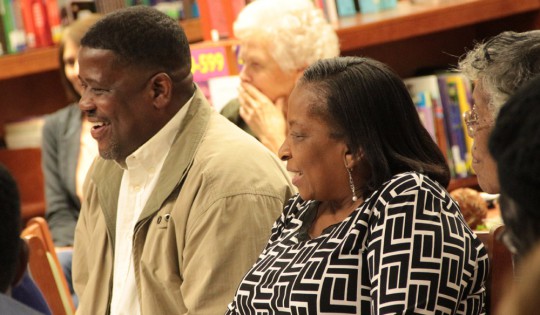 “I decided this isn’t for me,” Fountain recounted Monday about studying for a prison job. “I decided I was just going to stay where I was at. I did put my son there; he’s a correctional officer.”
“I decided this isn’t for me,” Fountain recounted Monday about studying for a prison job. “I decided I was just going to stay where I was at. I did put my son there; he’s a correctional officer.”
‘You are irreplaceable,” current Bratt Elementary Principal Jeanene Hall said Monday during a retirement reception Monday at the school.
Numerous current and former teachers and school staff members shared stories about Fountain’s 39 years at Bratt Elementary — from the serious like recovering from hurricanes to the lighthearted like removing a snake from a classroom. Almost every story of Fountain’s decades at Bratt included laughter, because, as numerous educators attested, laughter was just Fountain’s way.
“I don’t know what we are going to do without you Willie,” Hall said. “You made things really easy. I can’t ever thank you enough.”
For now, Fountain said he’s ready for retirement and time in the great outdoors. “Fishing and hunting,” he said. “I have a whole lot of fishing and hunting to do.”
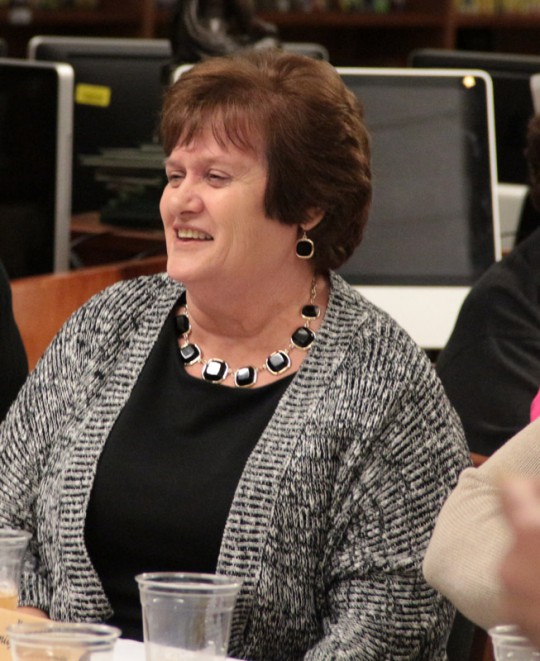 Also ready to go fishing is Bratt office employee Karen Brown, who was also honored Monday because she retires in a couple of months following 10 years at Bratt, about 35 total in education. “You are also irreplaceable,” Hall told Brown.
Also ready to go fishing is Bratt office employee Karen Brown, who was also honored Monday because she retires in a couple of months following 10 years at Bratt, about 35 total in education. “You are also irreplaceable,” Hall told Brown.
The group also recognized Sharon Cardwell, who was unable to attend, upon her retirement after 40 years in education.
Pictured top: Ruby Amerson Well (standing, left) found Willie Fountain (right) his first-ever job at Bratt Elementary School. Pictured bottom inset: Bratt retiree Karen Brown. Pictured below: Bratt Elementary School Principal Karen Hall shares written stories about retirees during a luncheon Monday afternoon. NorthEscambia.com photos, click to enlarge.
New Restaurant Opens In Molino
January 5, 2016
A new restaurant opened today in Molino.
Carters Burgers & Cafe opened Tuesday in the former Jimmy’s Grill location on Highway 29. Owner Jimmy Carter purchased Fran’s Diner in Molino and moved Jimmy’s Grill there in October, and now he’s opened back up the old location as Carters Burgers & Cafe. The new location will be open from 6 a.m. until 2 p.m. Tuesday through Saturday.
The new Jimmy’s Grill will also remain open.
Pictured: Carters Burgers & Cafe. Courtesy photo for NorthEscambia.com, click to enlarge.
Century Council Names Boutwell As 2016 President
January 5, 2016
Monday night, the Century Town Council elected member Ben Boutwell as council president and Ann Brooks as vice president. Brooks served as council president last year. Pictured: Century Council President Ben Boutwell conducts council business Monday night. NorthEscambia.com photos, click to enlarge.
FWC Law Enforcement Report
January 5, 2016
The Florida FWC Division of Law Enforcement reported the following activity during the two week period ending December 31.
SANTA ROSA COUNTY
 Officers Jones, Maltais and Pifer were conducting a detail in conjunction with FWC Law Enforcement Aviation section targeting early entry into the Eglin WMA. FWC Pilot Tolbert, who was patrolling the WMA by aircraft, contacted Officer Maltais that he had a visual on a vehicle driving in the WMA before legal hours. Pilot Tolbert guided Officer Maltais to the vehicle’s location where he conducted a traffic stop. There was a small hunting dog and a loaded shotgun in the cab passenger seat. The driver did not possess a driver’s license, Eglin hunting permit, hunting license nor a deer permit. During the stop, Officer Pifer smelled the odor of cannabis coming from the vehicle. The individual stated that there was no cannabis in the vehicle because he had smoked it all. During a search of the vehicle, Officer Pifer located a tobacco container which contained cannabis. Officer Pifer cited the individual for early entry into the WMA and for possession of cannabis under 20 grams.
Officers Jones, Maltais and Pifer were conducting a detail in conjunction with FWC Law Enforcement Aviation section targeting early entry into the Eglin WMA. FWC Pilot Tolbert, who was patrolling the WMA by aircraft, contacted Officer Maltais that he had a visual on a vehicle driving in the WMA before legal hours. Pilot Tolbert guided Officer Maltais to the vehicle’s location where he conducted a traffic stop. There was a small hunting dog and a loaded shotgun in the cab passenger seat. The driver did not possess a driver’s license, Eglin hunting permit, hunting license nor a deer permit. During the stop, Officer Pifer smelled the odor of cannabis coming from the vehicle. The individual stated that there was no cannabis in the vehicle because he had smoked it all. During a search of the vehicle, Officer Pifer located a tobacco container which contained cannabis. Officer Pifer cited the individual for early entry into the WMA and for possession of cannabis under 20 grams.
Officer Hutchinson received a complaint about someone illegally dumping three deer carcasses on the side of the road near a gate to a hunt club. After speaking with the complainant, Officer Hutchinson learned of three male subjects who were bragging about killing three deer the day before the carcasses were discovered. Officer Hutchinson located all three subjects at one of their residences and conducted interviews. During the interviews, two of the subjects admitted to dumping the carcasses on the right of way. Both subjects were issued criminal citations for littering (exceeding 15 pounds).
Officer Hutchinson was patrolling near a hunting club when he observed a large amount of trash that had been illegally dumped on the right of way and on the hunting club property. While investigating, Officer Hutchinson found clues as to the identification of the owner. Officer Hutchinson drove to the suspect’s house. Once he arrived, he discovered that the residence was vacant. He made contact with an informant who informed him that the person who was renting the residence and a friend were seen hauling off several large loads of trash just a few days before. Officer Hutchinson made contact with one of the subjects and conducted an interview. The subject admitted to helping his friend illegally dump the trash. Officer Hutchinson contacted the other subject and conducted an interview. The second subject admitted to dumping the trash. Both subjects were charged with littering exceeding 15 pounds.
While on foot patrol in Blackwater River WMA, Officer Ramos located a type of tree stand that is commonly used for hunting deer. A short distance away, the officer found a heap of fresh corn and noted that it was placed in a direct line of sight from the tree stand. Officer Ramos continued surveillance on the area until he discovered a vehicle that had parked on the closed road nearby. Officer Ramos approached the tree stand undetected and caught a man hunting there, directly facing the bait. After a brief interview the man admitted to placing the bait in the management area to attract deer. He was cited with taking wildlife on WMA lands upon which grain or other food has been deposited, and also issued two warnings for other violations.
ESCAMBIA COUNTY
No report was submitted for Escambia County.
This report represents some events the FWC handled over the past week; however, it does not include all actions taken by the Division of Law Enforcement. Information provided by FWC.
All Bets Are Off On Passage Of Florida Gambling Deal?
January 5, 2016
It’s a sure bet that lawmakers won’t sign off on a $3 billion agreement with the Seminole Tribe that Gov. Rick Scott handed over last month.
Whether the Legislature will pass any gambling deal — in what is certain to be one of the most heavily lobbied issues of the session that begins Jan. 12 — remains a huge question.
Scott’s proposed deal with the Seminoles, called a “compact,” may have made it even more difficult for lawmakers to pass a plan regarding an industry in which, as one former regulator said, operators often care more about what the other guy doesn’t get than what they receive.
“It won’t be anything less than a Super Bowl-type issue,” said Mark Delegal, a prominent Tallahassee lobbyist who isn’t representing entities involved in the gambling issue.
Under the compact signed by Scott and tribal leader James Billie last month, the Seminoles would be able to add craps and roulette to their casinos in exchange for a guarantee of $3 billion to the state over seven years.
The compact also would permit, but does not authorize, slot machines in Palm Beach County and at a new facility in Miami-Dade County, limited blackjack at pari-mutuels in Broward and Miami-Dade counties and possibly doing away with horse and dog racing altogether while allowing pari-mutuels to maintain cardroom or slot-machine operations, a concept known as “decoupling.”
Those components make passage of a gambling deal — which legislative leaders characterize as a “heavy lift,” a “three-dimensional game of chess” and a Rubik’s cube — a Sisyphean task.
“I think that everyone can kind of agree that this is an area that complicates the votes for people,” said House Regulatory Affairs Chairman Jose Felix Diaz, a Miami Republican who as the House’s lead negotiator on the compact will shepherd a bill through his chamber. “There are people that really want greyhound decoupling, but they might also equally hate something else that’s in it somewhere else and might butt up against the bill because they don’t get everything that they want.”
The elements allowed in the compact could generate unreasonable expectations for the pari-mutuel industry, making a deal harder to accomplish, according to Senate Majority Leader Bill Galvano, a Bradenton Republican who was instrumental in passing 2010 legislation that authorized an initial compact with the tribe.
“When the governor sent us a compact, that becomes the starting point for the pari-mutuel side of the equation. So what is allowed and not impacting exclusivity is now an expectation for the pari-mutuels. It’s like a floor,” he said.
Who gets what — and where — will be the focus of legislation that some predict will be the most contentious issue of the 2016 session.
The Seminoles have slots and blackjack at most of their casinos, but the tribe is in a legal battle with the state about the expiration of part or the 2010 compact that allowed blackjack and other types of “banked” card games. Meanwhile, pari-mutuels in Broward and Miami-Dade counties have slots, but want blackjack. Operators in several other parts of the state want slots, too, after local referendums on the issue. Hours of operation, tax rates and purses for horse races added into the mix generate an exponential degree of difficulty.
“That’s going to be a challenge this session, bringing all of that together to be able to have the requisite number of votes in each chamber. Then add to that the anxiety of timing, because when these issues open up and close, the entities that are interested don’t know when they’ll have another opportunity,” Galvano said.
While the proposal offered by Scott would permit slots in Palm Beach County, it would not allow the lucrative machines at pari-mutuels in five other counties — Brevard, Gadsden, Hamilton, Lee and Washington — where voters have also signed off on them.
That’s problematic for many, including House Speaker Steve Crisafulli, who hails from Brevard County but who said he voted against slots.
Crisafulli called the slots issue one of “fairness and equity.”
“Are you going to create a level playing field or are you not? Are you going to pick winners and losers? That’s a decision we have to make,” Crisafulli, R-Merritt Island, told reporters recently. “There’s a reality to vote counts. There’s a reality to understanding that there’s an interest in these communities for some of these folks to have pari-mutuels with slot machines because they passed a referendum.”
Passage of any gambling legislation requires bipartisan support in the GOP-controlled Legislature, because some Republicans typically oppose any bills dealing with the issue for ideological reasons.
Black lawmakers want slots for Gretna Racing, a tiny Northwest Florida horse track located in Gadsden County, one of the state’s poorest locales and the only county where the majority of the population is black. Gretna is operated by the Poarch Creek Indians of Atmore.
Senate Democrats, typically more friendly toward gambling legislation, “are looking very parochially at what’s happening to the facility in my district, or how does it affect it,” said Sen. Oscar Braynon, a Miami Gardens Democrat who serves on the Senate Regulated Industries Committee, which will give any gambling bill a preliminary vetting. “Right now, I don’t know that the compact does enough to galvanize enough Democrats to get the votes.”
Cobbling together a compromise that pleases everyone isn’t an option, according to Diaz.
“I don’t think there’s a single person that, no matter how you craft this bill, is going to be 100 percent happy with it,” he said. “I think the question they’re going to have to ask themselves is, ‘Can I live with the things I don’t like and the things I like about this bill in totality?’ ”
Time is also working against lawmakers. Neither chamber has considered any gambling legislation during committee meetings leading up to the 2016 session, which ends in March.
“Is the clock running? Yes. Is it getting late in the game? Yes. Is it going to be a very challenging issue to pass out of the Legislature? Yes. That’s just the reality of where we are,” Crisafulli said. “Can it be done? Certainly.”
by Dara Kam, The News Service of Florida
FDLE: More Than 13,000 Rape Kits Untested Statewide
January 5, 2016
More than 13,000 rape kits that could include evidence from sexual assaults are untested statewide, according to a report released Monday by the Florida Department of Law Enforcement.
The report — based on a survey conducted from mid-August to mid-December — shows that 13,435 untested rape kits are waiting in the evidence rooms of 279 law-enforcement agencies. That’s in addition to about 3,500 rape kits that come to FDLE each year.
Rape kits contain DNA evidence collected during investigations of sexual assaults. Testing the evidence could help law enforcement agencies solve crimes and prevent future attacks — but as the report notes, Florida does not have a law requiring the kits to be submitted for testing. The decision to submit rape kits rests with local law-enforcement agencies.
That could change in the upcoming legislative session.
A bill (HB 179) filed by Rep. Janet Adkins, R-Fernandina Beach, would establish time limits for local agencies to submit rape kits to FDLE for testing. The measure has passed one House panel and faces two more. A similar measure by Sen. Lizbeth Benacquisto, R-Fort Myers, faces three committees during the session, which starts Jan. 12.
“There is no doubt in my mind that people who commit this crime commit it again and again and again,” Adkins said. “And they won’t stop until they’re caught.”
The report comes after Attorney General Pam Bondi in September called on lawmakers to increase funding for crime labs to address the testing backlog. In its report, FDLE recommended that the state spend at least $8 million over a three-year period to do so.
“I would hope $8 million would be a very small price to pay to resolve even one unsolved rape,” Bondi said Monday.
Of the untested rape kits, 6,661 fall within FDLE’s jurisdiction. Another 6,774 are the responsibility of Broward, Miami-Dade, Palm Beach and Pinellas counties, which operate their own labs.
Meg Baldwin, director of Tallahassee’s Refuge House, which helps victims of domestic violence and sexual assaults, said the numbers come “as a shock but not a surprise.” She also praised the state for doing the assessment.
“We’re one of the few states I know of that have done that,” she said. “And FDLE also reports that the response and cooperation from all the local law enforcement agencies was very positive.”
The report found that kits were not tested for several reasons, including victims declining to proceed with investigations, state attorney’s offices declining to prosecute and suspects pleading guilty.
Also, some victims do not wish to file police reports. In those situations, kits may be held by local law enforcement or by rape-crisis centers for periods of time in case victims change their minds. Kits are forwarded to laboratories for testing only if reports are filed and victims have consented to testing.
The backlogs are a national problem, Bondi noted.
“If you look nationally, some big cities alone have as many untested kits as we do in Florida,” she said.
According to FDLE, New York City in 2000 began to test its entire backlog — 17,000 rape kits — resulting in more than 2,000 DNA matches and 200 cold-case prosecutions. In Michigan, the Wayne County Prosecutor’s Office identified 188 potential serial rapists and obtained 15 convictions. In Houston, the testing of 6,663 rape kits resulted in 850 matches in the federal DNA database.
In its report, FDLE offered several “business plans” for addressing the backlog, costing from $8 million to $32 million. That included possibly outsourcing the testing of the kits, buying additional equipment to conduct tests faster and hiring more crime-lab analysts.
“I’m sure the Legislature will respond affirmatively to the price tag and also the call to action generally,” Baldwin said.
by Margie Menzel, The News Service of Florida


